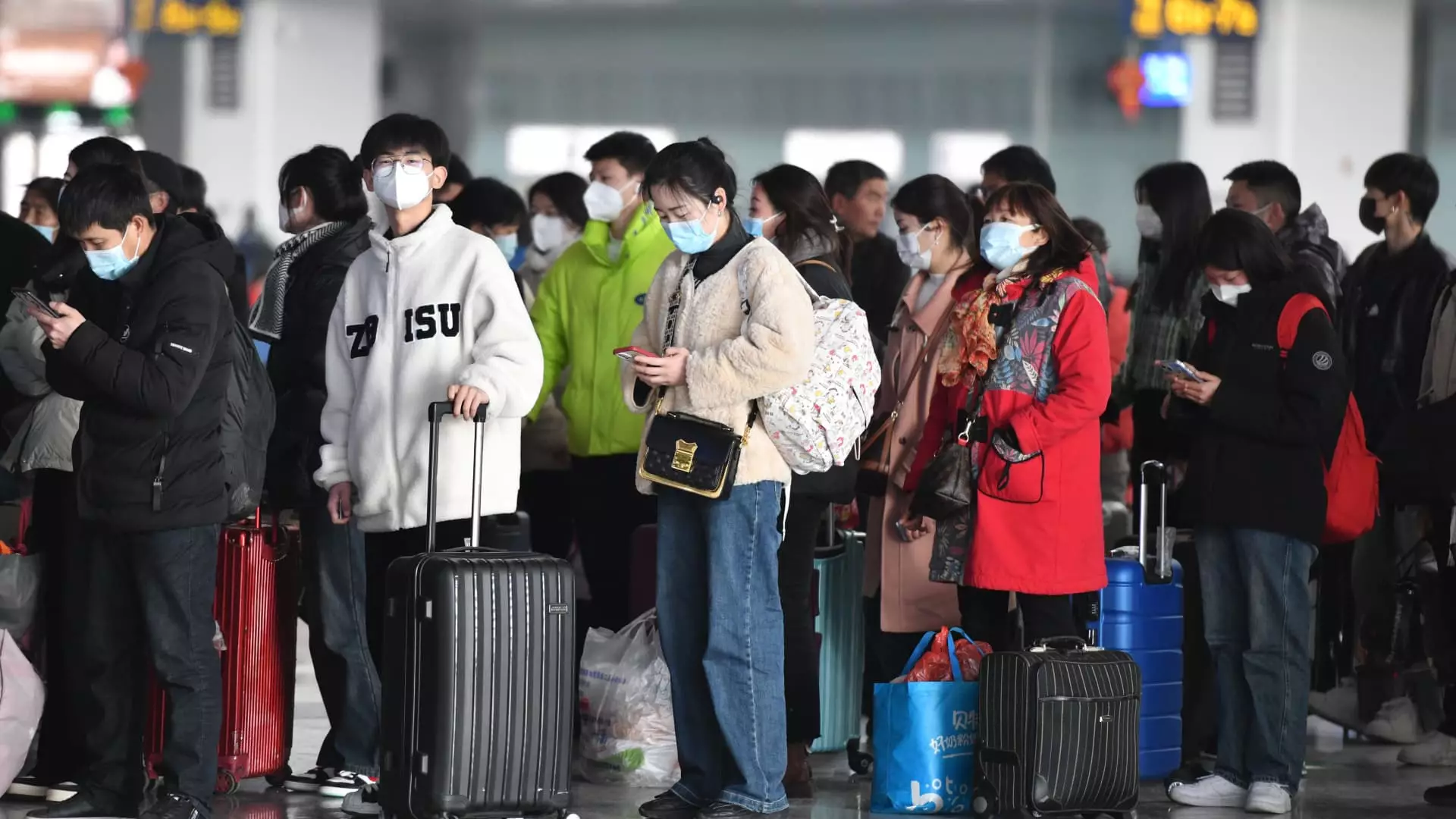The landscape of travel in China is undergoing a significant transformation, driven primarily by a combination of economic caution and evolving consumer preferences. As the nation’s recovery from economic downturns remains sluggish, travelers are gravitating towards last-minute bookings, revealing their hesitance towards long-term planning. Traditionally, the Chinese travel market has been characterized by a willingness to make plans weeks ahead; however, recent trends indicate a marked shift towards more spontaneous travel decisions. According to industry experts, many Chinese consumers are now booking their accommodations just days before their intended dates of travel, prompting some hoteliers to express concerns over their ability to project demand accurately.
This pivot towards a more impulsive approach to travel reflects a broader crisis of consumer confidence within the Chinese economy. CEO Anthony Caputano of Marriott International underscored these sentiments during his remarks at the recent Bank of America Gaming and Lodging Conference, pointing out that the current three-day average booking window represents an unprecedented low in consumer behavior. This stark contrast to the global norm, which averages nearly 20 days, raises important questions about the underlying motivations for this change.
Understanding Consumer Hesitancy
Economists from Oxford Economics have recently elaborated on the implications of these trends, noting that travelers are increasingly seeking to capitalize on last-minute deals. This propensity for spontaneity can be seen as a reflection of consumers’ financial wariness; with many households tightening their purse strings in response to dwindling economic optimism. The Chinese economy is currently grappling with a range of issues, including a persistent property crisis and elevated unemployment rates, leading to growing frugality among consumers across various sectors—from essential goods to leisure travel.
This environment has fostered a sense of caution that complicates not only personal financial decisions but also broader business forecasts within the travel and hospitality industry. As noted by experts at Cheung Kong Graduate School of Business, the inability to predict demand can create significant operational challenges for businesses aiming to optimize resources and manage costs effectively.
Notably, this isn’t the first time that short booking windows have been prevalent in the Chinese market. Historical data from the World Travel & Tourism Council highlighted that as early as 2019, over 70% of hotel bookings made through Trip.com occurred within a mere three days of check-in. This trend, however, intensified during the COVID-19 pandemic, where the unpredictability surrounding travel restrictions further compressed planning timelines, bringing the percentage of last-minute bookings to over 80%.
Although recent data indicates a resurgence in domestic travel activity—particularly noticeable during significant holiday periods such as Labor Day—average spending per traveler has yet to recover to pre-pandemic levels. This inconsistency between increased travel frequency and reduced spending exemplifies the ongoing challenges faced by the industry.
Looking ahead, the patterns revealed during these challenging economic times may set the tone for future travel behaviors. Experts anticipate that the trend of favoring short-haul trips to nearby cities will persist, potentially providing a much-needed boost to various local economies that have relied heavily on tourism. Notably, the upcoming Golden Week in early October is projected to exceed travel demand levels seen in 2019, illustrating a possible shift back toward more robust travel activity, albeit under cautious conditions.
As Trip.com CFO Xiaofan Wang has articulated, the company’s visibility into future booking activities remains limited due to the unpredictability associated with short booking windows. Nonetheless, a recovery may be on the horizon, with expectations that consumer sentiment could improve in the wake of National Day celebrations. All these factors weave together a complex narrative of resilience and adaptation within the Chinese travel sector, highlighting the importance of understanding changing consumer dynamics in a recovering economy.


Leave a Reply